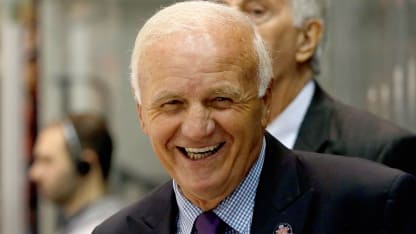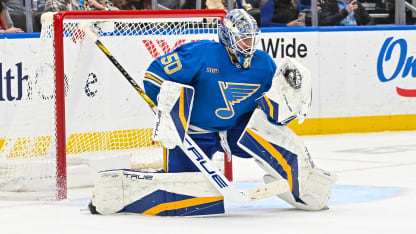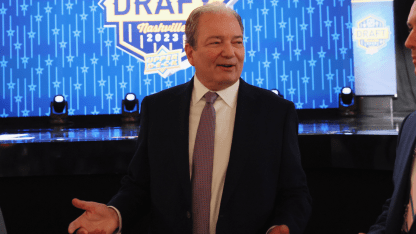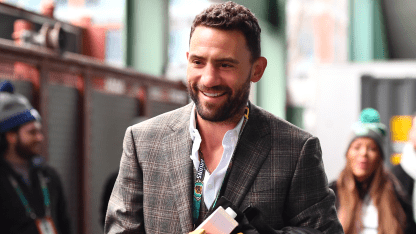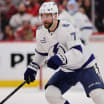NEWARK, N.J. -- It wasn’t until the last period of the last game of the 1995 Stanley Cup Final that New Jersey Devils coach Jacques Lemaire finally thought to himself, "You know, this might be possible."
Lemaire was coach of the Devils, who swept the Detroit Red Wings in the ’95 Final for the franchise’s first championship.
“Seriously, the last period of the last game was when I thought it possible because, if you remember, Detroit was a heck of a team,” Lemaire said. “All the players they had were unbelievable and it was a shock for all of them when we started to win. The shock probably came after the second win because before that, they probably said, ‘Hey, we'll come back.’ But after that third win, they’re probably saying ‘What the [heck] is happening?’”
Lemaire credits the players and his assistant coaches for the Cup win, but the winningest coach in Devils history was a big part of it as well.
He’ll have a chance to reflect and reminisce about those times and more when he’s inducted into the Devils Ring of Honor during a ceremony before the Devils play the Boston Bruins at Prudential Center on Wednesday (7 p.m. ET; MSGSN, NHLN, NESN, TVAS-D).
“There's no doubt I'm looking forward to it because I'm going to see a lot of people that I haven't seen since I left Jersey,” Lemaire said. “I'm very pleased they thought about me.”
Lemaire will join Dr. John J. McMullen, who brought the Devils to New Jersey from Colorado (inducted Jan. 6, 2017), and former forward Sergei Brylin (Jan. 20, 2024) as Ring of Honor inductees.
He began his coaching career with the Montreal Canadiens, where he won the Stanley Cup eight times as player in his 12 NHL seasons. Over the course of a season-and-a-half, he coached 97 games for Montreal from Feb. 25, 1984, to April 7, 1985.
He joined the Devils at the start of the 1993-94 season and coached five seasons, reaching the Eastern Conference Final in his first season and winning the Stanley Cup in his second season.
He was hired as the first coach of the expansion Minnesota Wild in June 2000 and guided them through the 2008-09 season before returning to the Devils in 2009. He retired after New Jersey lost in the first round of the 2010 Stanley Cup Playoffs, but returned Dec. 23, 2010, replacing John MacLean after the Devils began the season 9-22-2. They went 29-17-3 after Lemaire took over, including a 20-2-2 run from Jan. 9 to March 6, 2011.
In his three stints with New Jersey, he went 276-166-10 with 57 ties. The 276 regular-season wins and 35 playoff victories each rank first all-time for the Devils. He announced his retirement from coaching for the final time April 10, 2011, and works as a special assignment coach for the New York Islanders.
NHL.com caught up with Lemaire prior to his big day and discussed several topics, including memories of the 1995 championship team, the impact Lou Lamoriello has had on his life, thoughts on the top players in the game today, and more.
